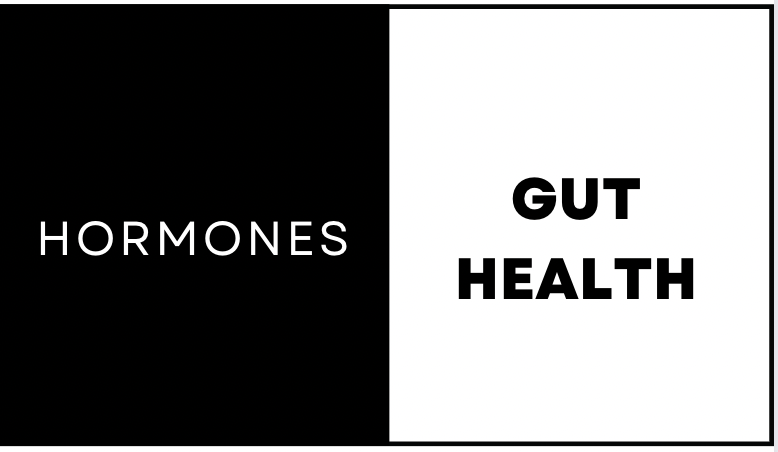How Gut Health Impacts Hormone Balance
Your gut health affects considerably more than you may know. Simply said, gut health is the function and harmony of bacteria and the various components of the gastrointestinal system.
When we think about our digestive tract, we think of symptoms like indigestion, bloating, gas, diarrhea, or constipation. What you may not realize is that your gut health affects the function of your immune system, your physical and mental health, and yes, even your hormone balance!
What is Gut Health and Hormone Imbalance in the Microbiome
You’ve probably heard of the term “gut health,” and you’re also aware that “excellent” gut health is desired. But what exactly does it mean to have a healthy gut? It entails maintaining an appropriate balance of microscopic bacteria and other germs in your digestive tract.
As explained by a gut health expert, every function in your body is interconnected, and gut health is critical to general health and hormonal balance. The gazillions of bacteria in your gut, known as the microbiome, play a role in hormone activation and elimination. These bacteria can be found in the skin, uterus, ovarian follicles, prostate, lungs, ears, and eyes, – and yes, In your gut as well among other places. When these microorganisms become imbalanced as a result of stress, pollutants, medications, gut infections, or a poor diet, it can have a significant impact on hormone levels and function.

Estrobolome Imbalance
There is a collection of bacteria known as the estrobolome that helps regulate the amounts of circulating estrogen. Normally, when your liver deactivates estrogens, they travel to your intestines, where the majority of them escape your body through your stools.
How Gut Health and Hormone Imbalance Are Connected
Just when you think you’ve figured out hormones, something else pops up. Did you know that your stomach influences the hormones that govern your menstrual cycle? It is crucial to note that even if you eat a balanced diet, you may be low in certain important micronutrients. Environmental factors beyond our control, such as the mineral-depleted soil in which most of our food is now grown and changes in growing practices that have reduced the number of minerals and vitamins in various foods, can result in us eating a perfect diet… and still being micronutrient deficient. It’s critical to incorporate high-quality supplements into your everyday regimen.
Unbalanced gut flora is also one of the reasons for hypothyroidism, or a low-performing thyroid. Chronic weariness, weight gain, and hair loss are all symptoms of this condition. Lactobacillus reuteri, which is kept in the gut, regulates insulin in part. With inflammation being a fundamental indication of an unbalanced microbiome, a lack of this helpful flora exacerbates the problem. Vitamin D3, a precursor hormone, is poorly absorbed by the body if gut health is poor. This vitamin is essential for health on many levels, and chronic shortages cause a slew of additional issues.

What Causes an Unhealthy Gut
The bacteria in your gut play a crucial role in your overall health, and disruption to the gut flora has been related to a variety of health issues. Poor sleep quality, alcohol intake, and inactivity are all factors that can affect your gut bacteria.
So, what creates an unhealthy gut or a gut bacteria imbalance in the first place? Common offenders include:
- Periodical stress
- High sugar/processed food diets
- Diet without fiber/a variation of plants
- Use of hormonal birth control
- Antibiotic/NSAID consumption
- Exposure to toxins (through personal care + home products, processed foods/pesticides, etc.)
- Sleep deprivation
- Sedentary lifestyle (lack of physical activity/regular movement)
How to Balance Hormones With Gut Health
While it may be tempting to follow the latest craze to manage your hormones, focusing on the gut and returning to the fundamentals of health can give significant relief. Healing your stomach and rebalancing your hormones might begin with your next meal. Diet is important in molding gut flora and protecting against leaky gut and other gut disorders.

#1 Consume a Nutrient-Dense, Anti-Inflammatory Diet
Eat more anti-inflammatory foods like fatty fish containing omega 3’s, dark leafy greens, ginger, turmeric, walnuts, almonds, flaxseed, chia seeds, organic berries, cruciferous veggies (broccoli, kale, etc.), avocados, organic green tea, organic grapes, mushrooms, bell peppers, tomatoes, and cherries.

#2 Consume Prebiotic Foods
Prebiotic foods nourish the beneficial microorganisms. Prebiotics nourish the good flora, allowing them to grow and multiply in the same way that sugar feeds bad bacteria. Prebiotics are present in high concentrations in fiber vegetables and fruits.

#3 Consume Probiotics on a Daily Basis
Probiotics include living, beneficial bacteria, and consuming them through food or drink enhances the balance of friendly flora immediately. Yogurt, sauerkraut, kefir, kimchi, and kombucha all contain them.

#4 Remove Sugars, Simple Carbon, and Trans Fats From Your Diet
This is one of the most important things you can do to improve your gut health.

#5 Artificial Sweeteners Should be Avoided
Sweeteners like aspartame have been found in studies to promote the growth of dangerous bacteria in the stomach.

#6 Drink plenty of water
Water is beneficial to the stomach lining and aids in maintaining homeostasis.
The Gut Hormone Connection from The Womb to The Tomb
The unique dynamic ecology of the gut microbiota that individuals acquire early in childhood is viewed as a metabolically active “organ” that is responsible for the individual’s health and the development of disorders throughout life.
Steroids and metabolic hormones are important in maintaining intestinal homeostasis, and dysbiotic microbiota can cause intestinal barrier malfunction and influence other organs, resulting in persistent low-grade inflammation, metabolic problems, and immunological dysfunction. Estrogens, androgens, progestogens, insulin, and other hormones work together to govern women’s health from the womb to the tomb. Although studies have revealed that gut microbiota plays an important role in the female reproductive endocrine system, more mechanistic research is needed.


Grеat post.